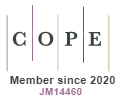Northern state curricula restructured by the BNCC: structure and ideological assumptions
DOI:
https://doi.org/10.5585/52.2025.26321Keywords:
northern curricula, BNCC, history teachingAbstract
In this article, we intend to highlight the structure and the ideological bases of the Amazonian curricula that were based on the BNCC, namely: the curricular guidelines of the states of Acre, Amapá, Amazonas, Pará, Rondônia, Roraima and Tocantins. To do this, we used the concepts of symbolic power by Pierre Bourdieu (1989), of curriculum, by Michael Apple (2011), Ivor Goodson (1997) and Gimeno Sacristán, and of content analysis, by Laurence Bardin (2016). We found that the northern curricula follow the BNCC in forwarding a neoliberal and neoconservative ideology, through skills and competencies, market worship and the precariousness of teaching work.
Downloads
References
APPLE, M. A política do conhecimento oficial: faz sentido a ideia de um currículo nacional? In: MOREIRA, A. F.; TADEU, T. (org.). Currículo, cultura e sociedade. São Paulo: Cortez, 2011.
ANDERSON, B. Comunidades imaginadas: reflexões sobre a origem e a expansão do nacionalismo. 3. ed. Tradução de Denise Bottman. São Paulo: Companhia das Letras, 2008.
ARENZ, K. H. Filhos e filhas do beiradão: a formação sócio-histórica dos ribeirinhos da Amazônia. Santarém: Faculdades Integradas do Tapajós, 2000.
BARDIN, L. Análise de Conteúdo. Tradução de Luis Antero Reto. São Paulo: Edições 70, 2011.
BOURDIEU, P. O poder simbólico. Tradução de Fernando Tomaz. 16. ed. Rio de Janeiro: Bertrand Brasil, 2012.
CARDOSO DE OLIVEIRA, R. A noção de colonialismo interno na etnologia. Tempo Brasileiro, Rio de Janeiro, v. 4, n. 8, p. 105-112, 1966.
COLARES, M. L. I. S.a; FONSECA, A. D.; COLARES, A. A. A educação no processo de transformação social: refletindo sobre a prática docente. Revista HISTEDBR On-line, v. 21, p. e021003-e021003, 2021.
DOI:https://doi.org/10.20396/rho.v21i00.8660256
FRANGELLA, R. de C. P. “Muitos como Um”: políticas curriculares, justiça social, equidade, democracia e as (im)possibilidades de diferir. Educar em Revista [online], v. 36 p. 1-20, 2020. DOI: https://doi.org/10.1590/0104-4060.75647
GOODSON, I. A construção social do currículo. Lisboa: Educa, 1997.
GONZÁLEZ CASANOVA, P. Sociedad plural, colonialismo interno y desarrollo. América Latina – Revista do Centro Latinoamericano de Ciencias Sociales, [S.l.], v. 6, n. 3, 1963.
INSTITUTO BRASILEIRO DE GEOGRAFIA E ESTATÍSTICA (IBGE). Base de Informações Geográficas e Estatísticas sobre os indígenas e quilombolas para enfrentamento à Covid-19: Notas técnicas. Rio de Janeiro: IBGE, 2020. Disponível em: https://geoftp.ibge.gov.br/organizacao_do_territorio/tipologias_do_territorio/base_de_informacoes_sobre_os_povos_indigenas_e_quilombolas/indigenas_e_quilombolas_2019/Notas_Tecnicas_Base_indigenas_e_quilombolas_20200520.pdf. Acesso em: 5 jan. 2024.
MACEDO, E. Base Nacional Curricular Comum: a falsa oposição entre conhecimento para fazer algo e conhecimento em si. Educação em Revista [online], v. 32, n. 2, p. 45-68, 2016. DOI: https://doi.org/10.1590/0102-4698153052
MOREIRA, M. A. Aprendizagem significativa subversiva. Série-Estudos-Periódico do Programa de Pós-Graduação em Educação da UCDB, n. 21, p. 15-32, 2006. DOI: https://doi.org/10.20435/serie-estudos.v0i21.289
MELO, A. de; MAROCHI, A. C. Cosmopolitismo e performatividade: categorias para uma análise das competências na Base Nacional Comum Curricular. Educação em Revista [online], v. 35, p. 1-23, 2019.
DE PAULA, L. K. Cultura histórica, visões do ensino: das obras fundacionais aos primeiros escritos para o ensino de história do Brasil (1817-1861). 2022. 275 f. Tese (Doutorado em História) – Faculdade de Ciências Humanas, Universidade Federal da Grande Dourados, Dourados, MS, 2022.
SACRISTÁN, J. O Currículo: Uma Reflexão sobre a Prática. Tradução Ernani F. da F.
Rosa. 3. ed. Porto Alegre: ArtMed, 2000.
SECRETARIA DE ESTADO DA EDUCAÇÃO DO AMAPÁ (SEED-AP). Referencial Curricular Amapaense. Macapá-AP: SEED-AP, 2018. Disponível em: https://drive.google.com/file/d/1VIyHyGY5unq-2d1j579fRqyO3lgX7Ept/view. Acesso em: 5 jan. 2025.
SECRETARIA DE ESTADO DE EDUCAÇÃO DE RONDÔNIA (SEDUC-RO). Documento Curricular de Rondônia. Porto Velho-RO: SEDUC-RO, 2018. Disponível em: https://transparencia.costamarques.ro.gov.br/CONSELHOS/media/arquivos/attachments/referencial_curricular_EI_0.pdf. Acesso em: 5 jan. 2025.
SECRETARIA DE ESTADO DE EDUCAÇÃO DE RORAIMA (SEED-RR). Documento curricular de Roraima. Boa Vista-RR: SEED-RR, 2019. Disponível em: https://www.gov.br/mec/pt-br/novo-ensino-medio-descontinuado/pdfs/RCSEERR.pdf. Acesso em: 5 jan. 2025.
SECRETARIA DE ESTADO DE EDUCAÇÃO DO ACRESECRETARIA DE ESTADO DE EDUCAÇÃO, CULTURA E ESPORTE DO ACRE (SEE-AC). Currículo de Referência Único do Acre. Rio Branco-AC: SEE-AC, 2018. Disponível em: https://drive.google.com/file/d/1VIyHyGY5unq-2d1j579fRqyO3lgX7Ept/view. Acesso em: 5 jan. 2025.
SECRETARIA DE ESTADO DE EDUCAÇÃO DO ESTADO DO TOCANTINS (SEDUC-TO). Documento Curricular de Tocantins. Palmas-TO: 2019. Disponível em: https://www.to.gov.br/seduc/documento-curricular-do-tocantins-educacao-infantil-e-ensino-fundamental/3pxz92xtgb1p. Acesso em: 5 jan. 2025.
SECRETARIA DE ESTADO DE EDUCAÇÃO DO PARÁ (SEDUC-PA). Documento curricular do estado do Pará: para eEducação infantil e ensino fundamental do estado do Pará. Belém-PA: Seduc-PA, 2018.
SECRETARIA DE ESTADO DE EDUCAÇÃO DO PARÁ (SEDUC-PA). Documento curricular para educação infantil e ensino fundamental do estado do ParáDocumento curricular do estado do Pará: Educação infantil e ensino fundamental. Belém-PA: Seduc-PA, 2019. Disponível em: https://www.seduc.pa.gov.br/site/public/upload/arquivo/bncc/Documento%20Curricular%20Para%20Educacao%20Infantil%20e%20Ensino%20Fundamental%20Do%20Estado%20Do%20Para-c304d.pdf. Acesso em: 5 jan. 2025.
SECRETARIA DE ESTADO DE EDUCAÇÃO E DESPORTO ESCOLAR DO AMAZONAS (SEDUC-AM). Referencial curricular Amazonense. Manaus-AM: Seduc, 2018. Disponível em: http://bit.ly/2Ul1x7R. Acesso em: 5 jan. 2025.
SILVA, J. As construções da BNCC e a questão dos estudos das relações étnico-raciais. 2018. 40 p. Trabalho de conclusão de Curso (Licenciatura em Pedagogia) – Faculdade de Pedagogia, Universidade Federal do Rio Grande do Norte (UFRN), Natal-RN, 2018.
STAVENHAGEN, R. Clases, Colonialismo y Aculturacion: Ensayo sobre un sistema de relaciones interétnicas en Mesoamérica. Cuadernos del Seminario de Integracón Social Guatemalteca, n. 19, p. 1-76, 1968.
TAVARES, F. M. M.; RORIZ, J. H. R.; OLIVEIRA, I. Caetano de. As jornadas de maio em Goiânia: para além de uma visão sudestecêntrica do junho brasileiro em 2013. Opinião Pública, v. 22, p. 140-166, 2016. DOI: https://doi.org/10.1590/1807-01912016221140
Downloads
Published
How to Cite
Issue
Section
License
Copyright (c) 2025 Andressa da Silva Gonçalves, Wilma de Nazaré Baía Coelho

This work is licensed under a Creative Commons Attribution-NonCommercial-ShareAlike 4.0 International License.
- Abstract 116
- PDF (Português (Brasil)) 38






